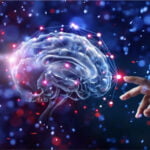
Maximizing Mental Potential: A Guide to Biohacking Your Brain’s Performance
December 5, 2023
The Power of Rest: Understanding How Quality Sleep Boosts Brain Function
December 6, 2023Water, the elixir of life, not only sustains our body but plays a pivotal role in maintaining optimal brain health. The brain, composed primarily of water, relies on proper hydration for its myriad functions. Let’s delve into the profound impact of staying hydrated on cognitive abilities and overall brain function.
HYDRATION AND COGNITIVE PERFORMANCE
Cognitive Clarity: Adequate hydration is key to maintaining mental focus and clarity. Even mild dehydration can impair short-term memory, attention, and decision-making abilities.
Brain Fog and Dehydration: Studies have shown that dehydration can lead to increased feelings of fatigue, confusion, and difficulty concentrating, affecting overall cognitive performance.
THE BRAIN’S NEED FOR WATER
Fluid Balance: The brain depends on a delicate balance of water and electrolytes to maintain optimal functioning. Dehydration disrupts this balance, affecting neurotransmitter production and neural communication.
Protection and Lubrication: Proper hydration cushions the brain, acting as a protective barrier against injury, and aids in the efficient transmission of electrical signals between neurons.
HYDRATION AND MENTAL HEALTH
Mood Regulation: Dehydration can impact mood stability and exacerbate symptoms of anxiety and irritability. Sufficient hydration is crucial for maintaining emotional well-being.
Stress Response: Well-hydrated individuals exhibit better stress-coping mechanisms, which can positively impact mental health and resilience.
LONG-TERM BRAIN HEALTH
Preventing Cognitive Decline: Chronic dehydration is linked to an increased risk of cognitive decline and neurodegenerative diseases. Adequate hydration throughout life may help mitigate these risks.
Brain Detoxification: Water plays a vital role in flushing out toxins and waste products from the brain, contributing to its detoxification processes.
STRATEGIES FOR OPTIMAL HYDRATION
Water Intake: Aim for an adequate daily intake of water, considering individual needs based on activity level, climate, and health status.
Balanced Diet: Consuming hydrating foods like fruits and vegetables, which contain high water content, supplements overall hydration.
Healthy Habits: Incorporate habits like carrying a water bottle, setting reminders, and monitoring urine color as indicators of hydration levels.
Conclusion
Prioritizing hydration isn’t just about quenching thirst—it’s about nurturing the brain. Sufficient water intake supports cognitive clarity, mood regulation, and long-term brain health. Understanding the profound connection between hydration and brain function underscores the importance of staying hydrated for a sharper mind and a healthier life.
Remember, a well-hydrated brain is a thriving brain. Embrace hydration as a cornerstone of your journey towards optimal brain health and well-being.


